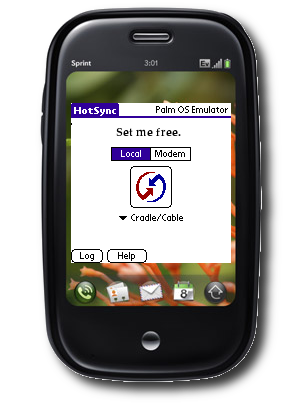12.26.16
Posted in America, LG, Microsoft, Patents, Samsung at 2:35 pm by Dr. Roy Schestowitz
Scientists as judges, not just as pressured (from above) examiners

David Ruschke’s ‘official’ photo
Summary: The Patent Trial and Appeal Board (PTAB), led by David Ruschke, continues to function as another ‘layer’ that ensures patent quality by weeding out bad patents and here are some of the latest cases
THE patents and litigation climate is rapidly changing in the US. It’s not just about software patents, but it has a lot to do with them as a lot of litigation emanates from such patents, notably troll litigation.
Just before the days of the holiday (whichever one) we learned about the Patent Trial and Appeal Board (PTAB), which is responsible for invalidating many software patents, being in the midst of this battle:
The Patent Trial and Appeal Board announced on Dec. 2 that it would uphold a patent filed by Securus Technologies, and that the challenge filed by rival company Global Tel*Link (GTL) was invalid. GTL maintains, however, that Securus only won a partial victory.
The patent (U. S. Patent No. 7,494,061 B2) that Securus maintains held up to the challenge from GTL, relates to biometric identity verification monitoring devices used in correctional facilities. According to a summary of the patent, “The term “biometrics” refers to technologies that measure and analyze human characteristics for authentication.”
This patent is a software patent by the sound of it. These are actually the sorts of patents which improperly use terms like “biometrics” to sound as though they’re anything but image analysis, which is my field of research (post-doctoral). It has nothing to do with biology and it’s all typically reducible to mathematics (matrices). Does the appeal board (PTAB) realise this? If not, maybe it’s time to reassess.
Another report, last Updated 6 days ago, is an article about appeals in Korea, published by Jay (Young-June) Yang, Duck Soon CHANG and Seung-Chan EOM from Kim & Chang (patent microcosm). Remember that Korea still blocks software patents (as it should) and we commend this decision, which guards software giants (also hardware giants, not to mention military equipment players) like Samsung and LG — both of which became Microsoft prey for using Linux nearly 9 years ago. We last reported on this 3 months ago (Microsoft wants more 'Linux patent tax' in Korea).
Going back to PTAB, there is a CAFC/PTAB case (CAFC having the authority to object) that MIP explained as follows: “The original Federal Circuit panel decision in the case – written by Judge Reyna and joined by Chief Judge Prost and Judge Stark – was issued on May 25. The court affirmed the Board’s denial of Aqua’s motion to substitute claims 22–24 of a patent concerning automated swimming pool cleaners.”
There is a 9-page PDF in there. As mentioned here some days ago, they are complaining because their patent was granted in error and now they want to change it. Imagine if granted patents were something dynamic you could just amend, edit, expand etc. as you go alone. What a ludicrous thing. Invalidate the patent and if they insist it’s not fair, then they should apply for the patent again (with amended claims).
MIP also explains how to use PTAB to squash bad patents (like software patents) even when it’s not so trivial. “Jim Brogan, Brian Eutermoser and Janna Fischer discuss the ways that the unsuccessful IPR petitioner at the Patent Trial and Appeal Board still can challenge validity in subsequent district court litigation,” MIP wrote.
MIP, to its credit, keeps abreast of PTAB cases (mostly because of Mr. Michael Loney), although it sometimes misinterprets the numbers it puts forth.
In better news about PTAB, here is PTAB having a go at software patents and getting a chance to kill them again. As PatentDocs put it:
Petitioner, iVenture Card Traveler Ltd, filed a Petition seeking to institute a covered business method patent review of all claims of U.S. Patent No. 7,765,128, owned by Smart Destinations, Inc. The Board, applying the standard that requires demonstration that more likely than not Petitioner would prevail with respect to at least one challenged claim, the Board granted Petitioner’s request to institute the CBM review.
We hope that PTAB will continue to do its job improving patent certainty by knocking out a lot of rubbish patents, leaving in tact only those that merit court cases (if any). █
Permalink
 Send this to a friend
Send this to a friend
09.22.16
Posted in Apple, Asia, GNU/Linux, LG, Microsoft, Patents, Samsung at 5:02 pm by Dr. Roy Schestowitz
 Summary: Microsoft-connected patent trolls like Larry Horn’s MobileMedia are still attacking Microsoft rivals and Microsoft wants more money from Korea, after it attacked Linux with software patents over there (notably Samsung and LG)
Summary: Microsoft-connected patent trolls like Larry Horn’s MobileMedia are still attacking Microsoft rivals and Microsoft wants more money from Korea, after it attacked Linux with software patents over there (notably Samsung and LG)
“US Pat RE39231,” wrote a patent attorney, eventually meant that “Apple Must Pat MobileMedia $3M for Infringing this Patent” (MobileMedia is not as real company and we wrote about it before, in relation to MPEG-LA and Larry Horn; we wrote about him in [1, 2]).
How many people out there know that MPEG-LA is a patent troll whose head himself is/was a patent troll? Not many people know this. Horn relies on dishonest lawyers from Proskauer Rose and sues Apple, which itself is part of MPEG-LA (we already took note of how bizarre this is).
Well, “Apple loses ringtone infringement case to Nokia and Sony’s patent troll firm,” according to the headline of this report. To quote: “Apple has been ordered to pony up $3 million in damages by a Delaware judge for infringing the patent of a firm partially owned by Sony and Nokia. The case, which has been running since way back in 2010, saw MobileMedia Ideas originally accuse Apple on 16 counts of patent infringement. Six years and plenty of court activity later, the original claim has been whittled down to just one patent pertaining to iPhone ringer alerts, for which MobileMedia has been awarded a tidy sum of money.”
A patent troll connected to Nokia — a legacy of Microsoft entryism and subsequent passage of patents to trolls like MOSAID — is somewhat of a pattern we’ve seen a lot of recently. Android too is being targeted by these trolls.
“MobileMedia Ideas just won a Delaware trial against Apple over a former Sony patent,” Florian Müller wrote about it. “May file further lawsuit now over iPhone 4S and later.”
Tom O’Reilly from Mobile Media Ideas is advertising for this patent troll. He passed around the press release “MobileMedia Ideas Wins Trial against Apple” and it said:
(CHEVY CHASE, MD, US – 21 September 2016) – MobileMedia Ideas LLC is pleased to announce that the US District Court for the District of Delaware today found MobileMedia Ideas’ “polite-ignore” patent (Re 39,231) for mobile phone call silencing valid and infringed by the iPhone 3G, 3GS and 4 and awarded $3M in damages. The case did not include the iPhone 4S, 5/5C/5S and 6/6 Plus on which there may be further proceedings. The patent was filed in 1994 by Sony Corporation, a pioneer in the development of mobile and other consumer electronics technology, and is now part of the patent portfolio licensed by MobileMedia Ideas.
MobileMedia Ideas President and CEO Larry Horn said, “We thank the jury for its service and hard work. This case could have been avoided by the taking of a license, however. MobileMedia Ideas’ business model is based on offering reasonable licenses to a valuable portfolio of important inventions widely practiced across a broad array of mobile phone and other portable products. We still welcome Apple to respect intellectual property developed by others with the taking of a license.”
MobileMedia Ideas was represented by a team of litigators at Proskauer Rose led by Steve Bauer and Kim Mottley of the Boston office.
In relation to an article/report mentioned here earlier this week, there is now an important update. Coming from the Korea Times, it says that the tax authority is likely to reject Microsoft’s appeal for refund of tax. To quote the opening parts:
The South Korean tax authority is expected to reject an appeal by U.S. software giant Microsoft Corp. to refund 634 billion won ($575.7 million) in a withholding tax, according to the tax authority and industry sources Thursday.
Microsoft filed complaints last month against the National Tax Service (NTS), seeking a refund of the withholding taxes paid by Samsung Electronics Co. to the NTS for using the software giant’s patents.
When will Microsoft pay the tax it has evaded? Above the law, still? A lot of the above sum comes from Linux-powered devices (we wrote about this many times before).
Those who believe that Microsoft has changed surely aren’t paying attention to what it does through patent trolls, through Nokia (which Microsoft demanded should pass patents to trolls), and in various distant countries like Korea. Microsoft just became a little more covert in its war against Linux. █
Permalink
 Send this to a friend
Send this to a friend
06.19.16
Posted in America, Courtroom, LG, Patents, Samsung at 10:27 am by Dr. Roy Schestowitz
Halo as a sanctuary for patent trolls

Summary: A Supreme Court ruling on patents, its implications for software patent trolls, and how media that is promoting software patents and patent trolls covered it
THE dishonest/self-serving patent lawyers in the US might never openly admit this, but software patents are dying not only in US courts and PTAB but also, increasingly, at the USPTO. This does not necessarily solve the problem of patent trolls because trolls tend to go after small companies that have neither the will nor the budget to invalidate the asserted patents, e.g. by going to court.
“Court rulings like this,” say anti-trolls lobbyists, “make it much more urgent for Congress to pass patent litigation reform legislation this year” (they probably allude to the VENUE Act or the likes of it).
“This does not necessarily solve the problem of patent trolls because trolls tend to go after small companies that have neither the will nor the budget to invalidate the asserted patents, e.g. by going to court.”“Supreme Court Ruling in Halo/Stryker Case Will Lead to More Lawsuits from Patent Trolls, More Forum Shopping by Repeat Plaintiffs,” says the accompanying PDF. “Ruling Gives Small Businesses Less Incentive to Fight Meritless Suits,” says the second line. This is correct as it’s already far too expensive and laborious. The smaller the company, the more likely it is to just pay ‘protection money’ (extortion) because the ratio between the ‘damages’ and the legal costs in a court makes it the ‘correct’ business choice.
Suppose for a moment that patent trolls don’t get granted (or get to buy) the patents they use. The proposed reform legislation does not actually tackle software patents. The subject is not even on the agenda and that’s a problem. As long as software patents can land on the lap of patent trolls, these are guaranteed to be misused. Natalie Rahhal of MIP wrote about the same decision (Halo/Stryker case) as follows: “The Supreme Court decided both Halo Electronics, Inc v Pulse Electronics, Inc, et al and Stryker Corporation, et al v Zimmer, Inc, et al on Monday, in a decision that significantly lowered the bar for the issuance of enhanced damages in a patent infringement case.
“Gene the WatchTroll (or “Watchdog” as he prefers to think of himself) is so upset that judges are doing their job and eliminating software patents (after SCOTUS Justices ruled on the matter) that he shamelessly exploits these latest developments to assert Justices are writing legislation (untrue).”“Enhanced damages are set out by Section 284 of the Patent Act and allow the Court to award a patent owner up to three times the amount of the damages found, if the jury or the court determines that the infringement was wilful.”
Gene the WatchTroll (or “Watchdog” as he prefers to think of himself) is so upset that judges are doing their job and eliminating software patents (after SCOTUS Justices ruled on the matter) that he shamelessly exploits these latest developments to assert Justices are writing legislation (untrue). In our previous post we showed how he had exploited the Halo/Stryker case to accuse Justices of ignorance and here he is saying that §101 (Alice) is “overused”:
It seems as though once the court realized the claimed invention related to software, it pulled out its §101 goggles and ignored any other grounds for patent invalidity. Such an analysis, which pushes decision-making into 101, which is ill-suited to be used as such a brute force instrument, has perplexed and frustrated patent practitioners. Courts, including the Federal Circuit, simply disregard the other sections of the Patent Act in favor of §101, which for them is easier and leads to decision-making without the need of discovery and without presuming the issued patent is valid.
With or without Halo/Stryker, with or without Enfish, §101 still stands and it will continue to demolish software patents by the thousands (those that reach PTAB and the courts anyway). One can be sure that patent lawyers will keep saying “Halo” and “Enfish” any time they wish to defend trolls and software patents. Joff Wild, for a change, says the T word (“Trolls”) in his article about Halo (a case which we first mentioned here last week) and here is his opening paragraph: “There have already been plenty of articles written about the Supreme Court’s decision in Halo v Pulse, which was handed down yesterday. As is usual in cases where they review the work of the Federal Circuit, the court’s justices have decided that its practices are wrong. This time, it’s the approach that the CAFC has towards determining wilful infringement – it’s too rigid and lets too many potentially very badly behaved defendants off the hook. Instead, the Supreme Court has stated, judges should have a lot more discretion in deciding when a defendant’s behaviour has been so egregious that it deserves the sanction of triple damages.”
“With or without Halo/Stryker, with or without Enfish, §101 still stands and it will continue to demolish software patents by the thousands (those that reach PTAB and the courts anyway).”Expect this to be used to discredit §101 and defend patent trolls. Now that Ericsson’s patent trolls (in Europe) are about get ‘scooped up’ IAM celebrates and as another major lawsuit comes to light IAM says: “Earlier this week an entity called Global Equity Management (GEMSA) filed lawsuits against 20 separate operating companies including Spotify, Netflix and Uber over the alleged infringement of two patents. All of the suits were filed in the Eastern District of Texas.”
That’s just a patent troll in the Eastern District of Texas, as usual. “US Pat 6,690,400, Asserted Against Amazon Web Service Users,” Patent Buddy wrote, adding some of his information about the patent. Apparently that’s just fine with Wild and his colleagues, whose employer received money from patent trolls. This EPO‘s mouthpiece, IAM ‘magazine’, still treats the world's largest patent troll (and Microsoft-connected troll) like some kind of heroic entity that people ought to emulate. Last week it continued to groom this patent troll, Intellectual Ventures. They almost do public relations, having spoken directly to the company’s executives last month (the editor in chief did, the trolls denialist).
“It doesn’t seem to bother Congress enough. Why not? Follow the money.”Perhaps the saddest thing in it all is that most voices that weighed in on the latter (and we were able to find) treated a win for patent trolls as some kind of fantastic ruling from SCOTUS, except perhaps TechDirt with this article titled “Supreme Court Just Made It Easier For Patent Trolls”.
To quote TechDirt: “As we’ve noted over the past decade or so, the Supreme Court has been smacking down the Court of Appeals of the Federal Circuit (CAFC) over and over and over again on issues related to patent law. And on Monday, the Supreme Court did it once again — but this time in a way that actually might not be good.”
The analysis ends with: “At the very least, this seems like an argument for Congress to finally stop sitting around and doing something to fix the patent troll problem.”
It doesn’t seem to bother Congress enough. Why not? Follow the money. Why is IAM so soft on trolls? Again, follow the money.
We could say a lot more about IAM’s sheer bias. Consider its latest coverage from Asia. IAM, as usual, misses the point. LG and Samsung are absolutely massive companies (almost part of the nation itself, including the military in fact); they are the exception, not the norm, when it comes to the number of patents. IAM says “Korean companies own some of the world’s largest patent portfolios, including of course the single biggest stockpile of US grants – by some margin – which belongs to Samsung Electronics.” But IAM does not mention that this is pretty much limited to just two companies. Regarding Japan, which has a lot more than just two or three giant technology companies, IAM suggests some kind of patent liquidation. Notice how they ascribe or use the word “asset” to refer to a patent (the A in IAM is “asset”), as if it’s some kind of physical object. Euphemisms are everywhere at IAM. It’s lobbying disguised as news. █
Permalink
 Send this to a friend
Send this to a friend
02.18.14
Posted in GNU/Linux, Google, LG, Samsung at 9:14 am by Dr. Roy Schestowitz
Summary: A quick look at some recent developments involving mobile Linux that’s not Android
LINUX and GNU are taking over the mobile world. Not only the Google-run Android (US-centric) is capitalising on GNU (founded in US) and Linux (centered in Portland). This is an international effort to capitalise on Free software, challenging proprietary systems like Blackberry’s and Apple’s, not only Android, which has been exceptionally surveillance-friendly.
The England-based Canonical (London-based offices) has Ubuntu for mobile devices, the Finland-based Jolla (former Nokia staff) has a promising operating system that’s a huge success in Finland and is very liberal even in the hardware sense [1], Korean giant Samsung is working on Tizen with new backers [2,3] (although none has pledged actual devices [4]), so Samsung is not focused just on Android, and LG (the other Korean giant) pushes WebOS [5]. Then there is Geeksphone, which incorporates Firefox OS but only alongside Android [6].
All these efforts ought to remind us that Linux and GNU are international endeavours that increase sharing, choice, diversity, etc. It’s not all about Android and there is no “monopoly” here, as some Microsoft- and Apple-friendly ‘journalists’ have been trying to insinuate recently. There are Android-derived alternatives such as CyanogenMod, and Google is not shunning them [7] unless they cause security risks [8]. █
Related/contextual items from the news:
-
The dream of customizing mobile devices with 3D printed modules took another step forward this week when Jolla opened sales of its promised “The Other Half” customizable backplates for Jolla smartphones. The Finnish company has even posted an SDK to let developers construct their own 3D printed backplate designs for the phone, which runs the Linux-based Sailfish OS.
-
-
Tizen has always been the presumed heavyweight among the new crop of mobile Linux operating systems, yet it has increasingly seemed more like a wispy shadow. Now, despite growing signs that Samsung’s first Tizen phones may not ship until late 2014, and doubts whether the company will put much effort behind the OS now that it has made peace with Google, the Tizen marketing push has cranked up for the upcoming Mobile World Congress in Barcelona. This week, the Tizen Association industry group that supports the Linux Foundation hosted Tizen project, announced 15 new members for its partner program.
-
-
LG is launching a new line of “all-in-one” digital signage systems that run the Linux-based WebOS, including new HTML middleware for app development.
-
Spanish smartphone maker Geeksphone has revealed more details on its forthcoming dual-boot Android and Firefox OS device.
-
Well, Google had warned not to use preview SDK to write apps as it was in initial phase. Dutta has an AllCast app which allows one to stream quite a lot of local content to Chromecast. Now since Google has released the SDK and opened Chromecast to 3rd party developers there are immense possibilities – and Dutta is back. He has teased users with an app which can mirror the Android screen on Chromecast cast.
-
Android Police is claiming to have received a copy of a Google memo, stating that Google Mobile Services certification will no longer be available to any device submitted by an operator running anything less than Android 4.2.
Permalink
 Send this to a friend
Send this to a friend
02.25.13
Posted in LG, Microsoft, Patents at 9:53 pm by Dr. Roy Schestowitz

Summary: WebOS turns out to have patents as ‘part of the platform’
WebOS, which Apple had threatened with patents about 4 years ago (before it became Open Source, shot itself in the foot. It has been sold to LG, which pays Microsoft for Linux, in order to produce smart TVs; but as one of our reader correctly notes, part of the transaction of source code includes patents (yes, for code). So here is yet another example of Linux-powered TVs that Microsoft will probably profit from. We gave other examples before. Extortion pays off.
Now, it’s not unusual for phone platforms to get patents on software (RIM got them as well this month), but for a platform which claims to be free/Open Source this is a bit of a heresy. Avoid WebOS/LG. █
Permalink
 Send this to a friend
Send this to a friend
05.27.11
Posted in GNU/Linux, Kyocera Mita, LG, Linspire, Microsoft, Patents, Samsung, SLES/SLED, Xandros at 11:17 pm by Dr. Roy Schestowitz
Using software patents, Microsoft turns Linux into its own cash cow whilst also making it more expensive

Summary: Techrights’ fight against ‘Linux tax’ from Microsoft is getting a lot more attention this Friday
“BOYCOTT NOVELL” was all about stopping Microsoft tax on GNU/Linux. More people are beginning to wake us and realise that our cause was all along on target, as several distributions of GNU/Linux which paid Microsoft for this ‘privilege’ simply went extinct (Xandros' price was $50 for Microsoft patents). Our goal was to ensure that people/companies do not become dependent on Microsoft-taxed distributions, as that would simply serve Microsoft’s goal of making GNU/Linux its own cash cow. SUSE, Turbolinux, and Linspire were also part of this problem and all those companies went into the ashtray of history. There are more such companies, but they sell hardware, not purely software.
Everyone appears to have just ‘discovered’ that “HTC Pays Microsoft $5 Per Android Phone” and there is already a lot of coverage about it. Quoting The Register:
Buy an HTC smartphone and $5 of what you spent on it goes to Microsoft – even if you’ve just bought an Android device.
So says Citi analyst Walter Pritchard in a note sent out to investors today, according to Business Insider.
Microsoft announced the royalty payment deal – the result of a legal settlement – last year, but the amount the software giant receives was not made public. MS has alleged Android infringes its intellectual property, and has other smartphone vendors in its sights.
Pritchard reckons Microsoft is pursuing other Android handset makers for a royalty of $7.50-12.50 per device. HTC clearly got of relatively lightly by settling Microsoft’s claims out of court.
[...]
Microsoft can’t be too forceful. If can’t afford to overly annoy those vendors who’re also selling phones based on its Windows Phone OS – they might just drop it, in a huff. Or they may trade lower royalties for a stronger commitment to WinPho – something Microsoft needs far more than even a few hundreds of millions of dollars in royalty payments.
Saumsung, LG, and Kyocera Mita also pay Microsoft for Android. There might be more such companies, perhaps not prominent ones though. Faced with a price tag, people act surprised about it even though our site has highlighted this issue since 2007 when Samsung signed the first such deal and in order to discourage similar deals we called for a boycott. The bottom line is, we do have a problem here, but it is not a new problem. We even found one anti-Linux propagandist writing: “This is just fraud. I really like HTC phones with their Sense interface but I have a Galaxy S II on order and I will not buy any HTC phone again while they give in to Microsoft’s blackmail.”
According to other news from today, Lodsys wants to go after Android developers. “Patent holding company Lodsys caused a stir recently when it demanded money from iOS developers using in-app payments,” says this report, “something it holds a patent for. Now it appears that Android developers could be next in line for a stern email from the firm.
“Android Community has spotted one developer who is claiming to have received a request for payment in relation to integrating in-app payments into an Android app. If true, it could stir up another hornet’s nest of anger in the development community.”
“Saumsung, LG, and Kyocera Mita also pay Microsoft for Android.”This is actually not news and we alluded to it before. Apple, unlike Google, is a patent aggressor, so it is not the same situation for Android and Apple’s hypeOS. Interestingly enough, Microsoft’s ally Nokia is also giving a hard time to Apple. How long before Microsoft uses Nokia to sue Android distributors too? Nokia has given hints about it. Microsoft’s strategy is to tax Linux from as many directions as possible. It’s blackmail [1, 2, 3, 4, 5, 6, 7], so regulators should step in to intervene. █
“That’s extortion and we should call it what it is. To say, as Ballmer did, that there is undisclosed balance sheet liability, that’s just extortion and we should refuse to get drawn into that game.”
–Mark Shuttleworth
Permalink
 Send this to a friend
Send this to a friend
01.15.11
Posted in Dell, LG, Microsoft at 5:05 pm by Dr. Roy Schestowitz
Summary: Vista Phony 7 [sic] does not get the channel quite so excited rather than reluctant about everything (LG and Dell are the examples named in the news)
Vista Phony 7 is a poor product. One British review says that “Windows Phone 7 can’t yet hold a candle to iOS or Android for polish or content.” In response to this, a reader of ours wrote in Identi.ca: “Good, at least one Microsoft product doesn’t hold a candle. Tired to hear Linux doesn’t hold candles…”
Here are some more reviews of the platform, bearing headlines like “Early Reviews Peg Windows Phone 7 As Still Lagging Behind iOS”; “Microsoft Windows Phone 7 Is OK, but Has Holes, Reviews Say”; “Top 5 things I dislike about Windows Phone 7″; “Windows Phone 7: Microsoft’s Disaster”; “Microsoft Windows 7 phone: Poor cousin of iPhone for the money conscious Indian market?” and “Confessions of an iPhone User: Why I Don’t Like Windows Phone 7″,. Watch the MSNBC spin and mind Dell’s delays [1, 2, 3, 4, 5, 6], which we interpret as Dell putting this under a low priority amidst other problems it has given Microsoft:
A batch of court documents The New York Times pressed to unseal has more details about a flood of faulty computers the company sold in 2003 to 2005.
Dell also develops some devices with Android, preinstalls GNU/Linux on servers, and sells PCs with Ubuntu on them.
For those who believe that only Dell is a Microsoft partner that gets cold feet, well… how about LG? As Microsoft’s Bright booster puts it, based on this new report, “LG [is] disappointed by Windows Phone 7 launch” (more reasons for Dell to call the whole thing off).
LG has gone on record saying that Windows Phone 7 hasn’t performed as well as it thought it would, following the launch of the mobile OS in October.
“From an industry perspective we had a high expectation, but from a consumer point of view the visibility is less than we expected”, James Choi, marketing strategy and planning team director of LG Electronics global told Pocket-lint in a one-to-one interview.
In light of many problems that may or may not have culminated in Vista Phony 7′s failure, more and more people call for Steve Ballmer’s resignation/ousting and the latest such call comes from ZDNet’s main blog:
At the time, I wrote that it may be time to yank Microsoft off of the keynote stage. But maybe it’s not Microsoft that needs to go. Maybe it’s Ballmer.
Times are getting interesting now that Windows becomes rather extinct in the mobile arena, which is one of the fastest-growing markets. █
Permalink
 Send this to a friend
Send this to a friend
10.08.10
Posted in Deals, GNU/Linux, LG, Microsoft, Patents, Red Hat at 6:51 am by Dr. Roy Schestowitz
Handouts from Microsoft

Summary: Software patents proponents share their wealth while companies that bring free/libre software to the market get sued
PATENT TROLL Acacia has been agitating Linux for almost exactly three years now and a few days ago it made a settlement announcement regarding Red Hat [1, 2, 3]. Microsoft paid Acacia some months ago and it’s paying it again based on Murdoch’s press and Mary Jo Foley who writes:
Sometimes it’s cheaper to head off a potential problem than fight — a stance the old Microsoft regime would repudiate, but one that the current one increasingly has been pursuing.
On October 7, Microsoft licensed 74 patents for an undisclosed amount with Acacia Research Corp. and Access Co. Ltd, the Japanese company that acquired PalmSource, the maker of the Palm operating system, according to a report in the Wall Street Journal.
Notice the role of ACCESS in there. André Rebentisch from the FFII warned us last year about the patent pools ACCESS or LiMo were getting into. The company was pro-software patents and patent trolls are now using similar tactics to merely extort competitors. It’s a good thing that ALP is dead given the damage its staff was causing to software freedom. “Microsoft pays Acacia,” I pointed out to Glyn Moody, adding that “Groklaw perceives that as Microsoft rewarding those ex-Softies who work in Acacia and sue Red Hat et al.” Moody did not rule out the possibility of it being a factor.
“Acacia has been good to Microsoft as it helped generate Linux FUD for several years, just like SCO did.”Isn’t it fascinating how money can change hands through settlements? Microsoft did not even challenge this, it immediately paid. Acacia has been good to Microsoft as it helped generate Linux FUD for several years, just like SCO did.
In other news, now that Microsoft extorts Android, LG (with a Microsoft patent deal covering Linux) drops some of its Android plans and just a couple of days later initiates a Microsoft co-operation. A reader of ours from Latvia sent us this link. It turns out that some of those companies which signed Linux patent deals with Microsoft were actually quietly sued but settled before this was made publicly known. Melco is reportedly one of those. That’s just racketeering [1, 2, 3, 4, 5, 6, 7] and it’s where Microsoft seems to be going. █
Permalink
 Send this to a friend
Send this to a friend
« Previous entries Next Page » Next Page »


 Summary: Microsoft-connected patent trolls like Larry Horn’s MobileMedia are still attacking Microsoft rivals and Microsoft wants more money from Korea, after it attacked Linux with software patents over there (notably Samsung and LG)
Summary: Microsoft-connected patent trolls like Larry Horn’s MobileMedia are still attacking Microsoft rivals and Microsoft wants more money from Korea, after it attacked Linux with software patents over there (notably Samsung and LG)



















 Content is available under CC-BY-SA
Content is available under CC-BY-SA